State Performance Plan 2005-2012 - Part B - Arkansas Department Of Education Page 107
ADVERTISEMENT
 1
1  2
2  3
3  4
4  5
5  6
6  7
7  8
8  9
9  10
10  11
11  12
12  13
13  14
14  15
15  16
16  17
17  18
18  19
19  20
20  21
21  22
22  23
23  24
24  25
25  26
26  27
27  28
28  29
29  30
30  31
31  32
32  33
33  34
34  35
35  36
36  37
37  38
38  39
39  40
40  41
41  42
42  43
43  44
44  45
45  46
46  47
47  48
48  49
49  50
50  51
51  52
52 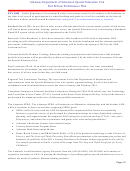 53
53  54
54  55
55 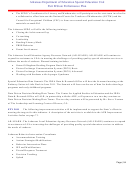 56
56 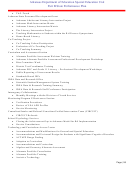 57
57 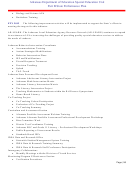 58
58  59
59 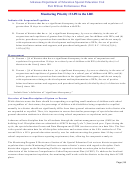 60
60  61
61  62
62  63
63 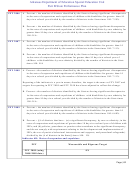 64
64  65
65  66
66 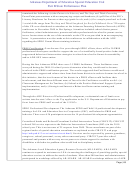 67
67 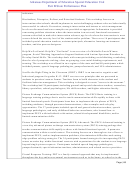 68
68 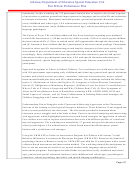 69
69  70
70 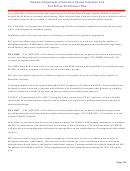 71
71 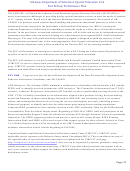 72
72  73
73  74
74  75
75 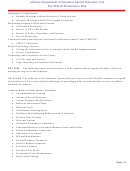 76
76  77
77 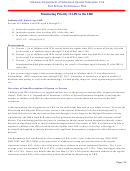 78
78  79
79  80
80 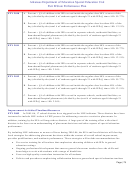 81
81 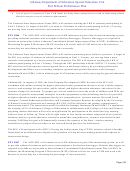 82
82 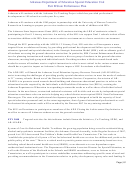 83
83  84
84 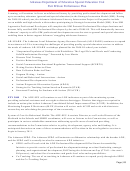 85
85 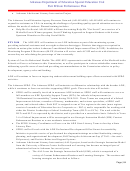 86
86 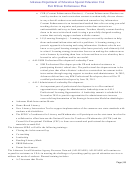 87
87 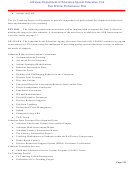 88
88  89
89  90
90 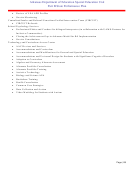 91
91 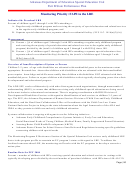 92
92 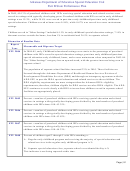 93
93 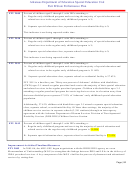 94
94  95
95  96
96 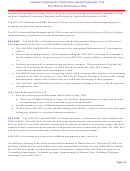 97
97 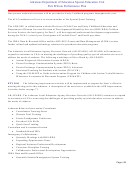 98
98  99
99  100
100  101
101  102
102  103
103 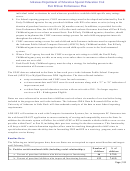 104
104 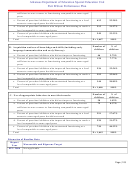 105
105  106
106 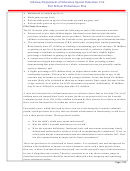 107
107  108
108  109
109  110
110  111
111  112
112  113
113 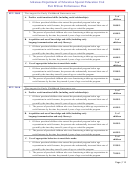 114
114  115
115  116
116  117
117 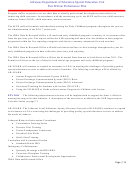 118
118 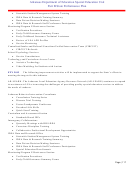 119
119  120
120  121
121  122
122  123
123  124
124 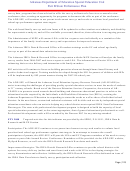 125
125 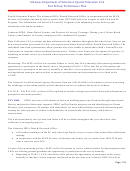 126
126 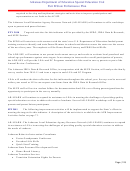 127
127  128
128  129
129  130
130 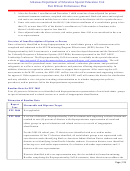 131
131 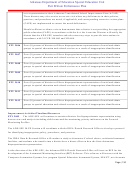 132
132  133
133 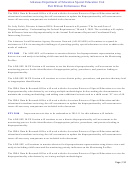 134
134 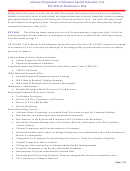 135
135  136
136  137
137 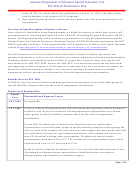 138
138 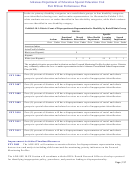 139
139  140
140  141
141  142
142 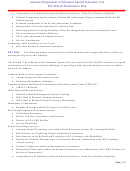 143
143  144
144 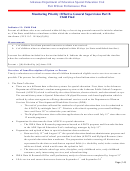 145
145 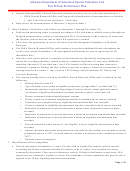 146
146  147
147 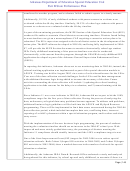 148
148 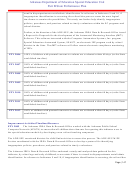 149
149 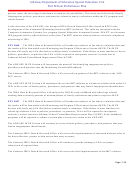 150
150 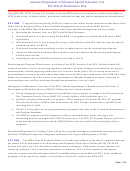 151
151  152
152  153
153  154
154  155
155 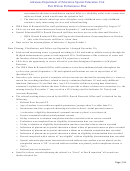 156
156 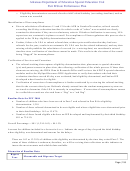 157
157 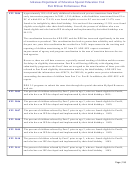 158
158  159
159  160
160  161
161  162
162  163
163 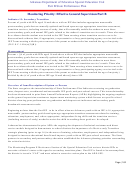 164
164  165
165  166
166 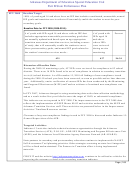 167
167  168
168 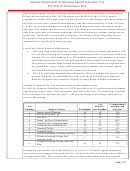 169
169  170
170  171
171  172
172  173
173 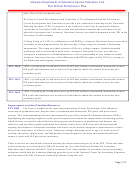 174
174 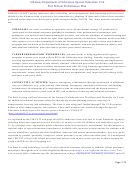 175
175  176
176 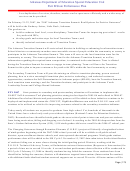 177
177  178
178 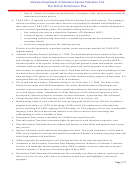 179
179  180
180 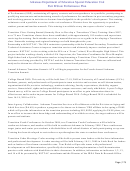 181
181  182
182  183
183  184
184 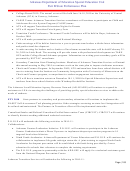 185
185  186
186  187
187  188
188  189
189  190
190  191
191  192
192 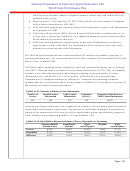 193
193 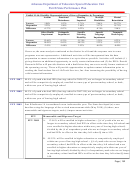 194
194  195
195 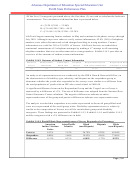 196
196  197
197 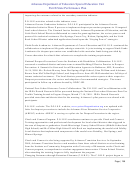 198
198  199
199 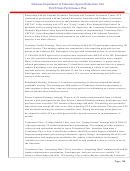 200
200  201
201  202
202  203
203 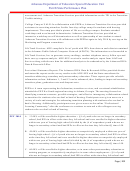 204
204 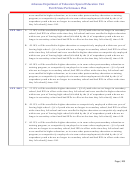 205
205  206
206 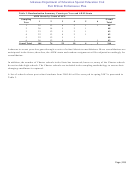 207
207  208
208 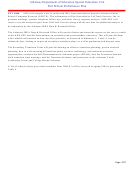 209
209  210
210  211
211 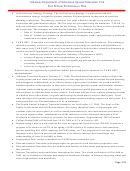 212
212  213
213  214
214  215
215 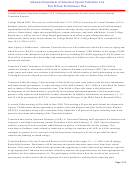 216
216  217
217  218
218 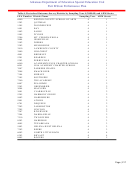 219
219 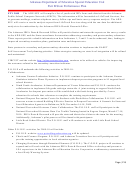 220
220  221
221 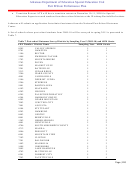 222
222  223
223 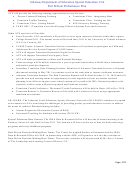 224
224  225
225 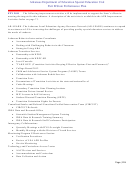 226
226 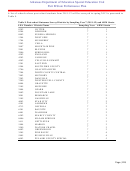 227
227  228
228 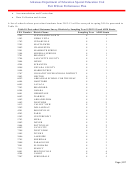 229
229  230
230  231
231  232
232  233
233  234
234  235
235 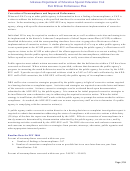 236
236  237
237 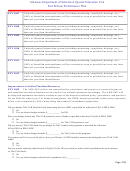 238
238  239
239 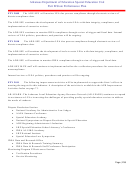 240
240 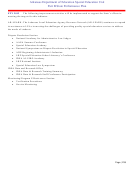 241
241 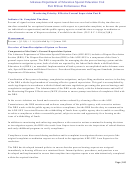 242
242  243
243  244
244  245
245 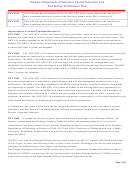 246
246  247
247 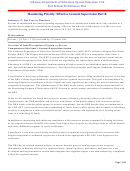 248
248 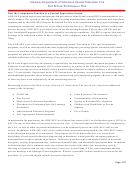 249
249  250
250 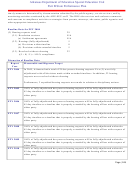 251
251 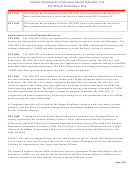 252
252  253
253  254
254  255
255 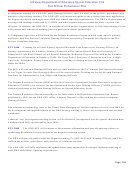 256
256 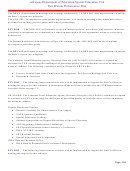 257
257  258
258  259
259  260
260  261
261 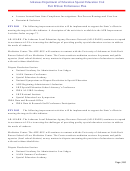 262
262  263
263 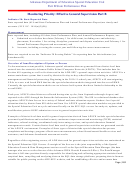 264
264 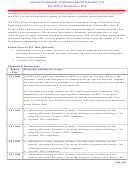 265
265  266
266  267
267  268
268 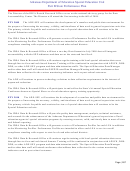 269
269  270
270  271
271  272
272 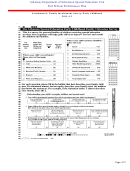 273
273  274
274 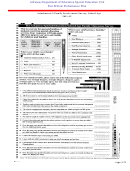 275
275  276
276 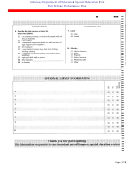 277
277 Arkansas Department of Education Special Education Unit
Part B State Performance Plan
• Maintained or reached age level;
• Made gains on age level;
• Did not make gains on age level but made personal progress; and
• Did not make gains on age level or personal progress.
Pilot Study Outcomes:
The EC Outcome pilot study revealed the following on each of the functional outcomes.
• Parents tend to give their children higher functional scores than special education
providers (teachers and related service providers). Parents also tend to evaluate more
children as not improving over the 6-month review period than special education teachers;
• The curriculum based assessment (CBA) and teacher scoring show similar patterning.
Both identify more EC children as reaching or maintaining age level and more EI children
as gaining on age level. Special education teachers tend to evaluate a slightly lower
percentage of students as reaching or maintaining age level and a slightly higher
percentage of students as gaining on age level than general education teachers;
• A comparison of the teacher assessment average percentages and the overall total
assessment averaged percentages revealed a variance of three percentage points,
demonstrating that when observed as a whole, assessment scores are generally similar
across evaluators; and
• A higher percentage of EI children show no improvement under the positive social
relationship outcome. This may be a result of less social interaction due to age, or the
outcome may be harder to evaluate with younger children. Across the board, EI children
are more likely to be evaluated as showing no improvement. Once again, this may be due
to age, maturity level, and/or fewer life experiences in general. Additionally, EI children
may be more difficult to evaluate than older EC children.
A look into functional level advancement across evaluators shows that no less than 39% of all
children assessed jumped three levels or more [on the seven point scale] over the 6-month
evaluation period. Over 50% of the children evaluated by their parents were shown to advance
three or more functional levels within the review period.
Functional scores, which increased by three or more levels during the 6-month evaluation
period, raised questions as to why such an extreme advancement in functionality would occur
over a short period of time. These questions include:
• Was the child’s initial assessment underscored?
• Was the child’s 6-month assessment over-scored?
• Were the outcome definitions, functional scale, and assessment instructions clearly
defined and understood by all those involved in conducting the evaluations? If not, at
which point did the communication between administrators and evaluators fail? How
can this communication be improved for future assessments?
These are questions to be considered in future studies. It is extremely rare and unexpected for
children with disabilities to improve at such a dramatic rate in such a short period of time.
However, within a 6-month observation period, one would expect this type of advancement to
be rare if altogether non-existent. Therefore, questions as to why these extreme jumps in
functional scores occurred should be raised and addressed when designing and conducting
future assessment studies.
Page | 105
ADVERTISEMENT
0 votes
Related Articles
Related forms
Related Categories
Parent category: Legal









